Speaker Spotlight
Curious what to expect at the WSAVA/FECAVA Congress? Take a sneak peek at some of the speakers and session below!
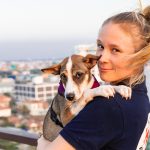
Katherine Polak - Welfare
What is the topic of your lecture and why should people attend?
The topic of my presentation is not an easy one to listen to – it will be about the dog and cat meat trade in Southeast, and more specifically the risk it poses to both public health and animal welfare. The trade is one of the most severe companion animal issues of our times, involving upwards of 10 million dogs and cats every year. It undermines regional rabies control programs, dog population management projects, and threatens the lives of pets. Attendees will learn more about this trade and how it operates, what governments are doing to stop it, and how it relates to the COVID-19 pandemic (and could serve as a future potential pandemic).
Which sessions in the program are most excited for?
It’s hard to pick just one! I have to say that I am excited about the WSAVA Professional Wellness track given that mental health issues are so prevalent in the veterinary profession, and there is no better time like the present to discuss The Science of Happiness! I’m also excited to hear updates in the field of pain management. Looks like some great talks are lined up in that track.
What do you like most about your job?
The best part of my job is working with local partner animal welfare charities across Southeast Asia. Watching them grow and become more effective at helping animals in their communities is so rewarding.
What is your favorite part of the Congress?
Of course, the networking opportunities and hearing from experts in the field.
What is the rarest animal you have treated or the most remarkable case you’ve seen?
Hmmm… This definitely isn’t rare, but I’ll never forget my first case on overnight emergency as an intern at Colorado State U, fresh out vet school – a hit by car duck! Thank god for veterinary nurses who were well equipped to handle this case and hold my hand through the night.
My favorite animals are:
Cats, and hippos.

Sue Ettinger - Oncology
What is the topic of your lecture, and why should people attend the session?
We all hate cancer but treating cancer and learning about cancer does not have to be depressing, and there is hope. Veterinarians know Dr Sue for her positive approach to cancer in pets. My sessions will provide practical cancer information for treating and diagnosing cancer with her inspiring and motivational style. The talks are interactive, educational, engaging, and filled with energy. I will provide veterinarians and veterinary technicians practical tips and tricks they can use tomorrow when they go back to work.
Which session in the program are you most excited for?
I am always excited for lectures in oncology and cytology. I am so excited for my case rounds lecture with Dr Massari!
What do you like most about your job?
The quality of life that dogs and cats have while going through chemotherapy. They tolerate chemotherapy so well and their families are so happy they chose to treat. I also love the bond I develop with my clients, and I know I am helping them through such a challenging time.
What is your favorite part of the Congress?
My favorite part of WSAVA is meeting new veterinarians from around the world and getting them as excited as I am to learn about cancer and treat cancer once they are back in their hospitals.
What is the rarest animal you have treated or the most remarkable case you’ve seen?
I treated a squirrel with malignant melanoma, not rare but unusual to treat a wild squirrel.
For me, the most remarkable cases are my patients with metastatic cancer that are living sometimes 1 to 3 to 4 years on metronomic chemotherapy. And they are living well. Stable disease can be a success.
My favorite animal is:
the Elephant

Andrew Mackin - Hematology & Blood Transfusions
Can you provide a short summary of your lecture?
Over the past two years, a number of consensus statements and systematic reviews have thoroughly evaluated the diagnosis and treatment of immune-mediated hemolytic anemia (IMHA) in dogs and cats. This lecture will summarize the key lessons that we have learned from these recent reviews, and use these lessons learned to better help veterinarians manage this common and life-threatening disease.
What do you like most about your job?
The endless variety of challenges faced within a veterinary teaching hospital, with day by day clinical, teaching and research problems to solve.
What is your favorite part of the Congress?
The chance to meet international colleagues in a great European city.
What is the rarest animal you have treated or the most remarkable case you’ve seen in practice?
I have had the chance to do an endoscopy on both a tiger (tracheobronchoscopy) and a lion (gastroduodenoscopy).
I have seen many remarkable cases over the years. But my favorite was probably the Labrador that ate the car keys, keyring and all, from his owner’s new Audi.
My favorite animal is:
One of my dogs, Mini Cooper, a rescued Pug/Shih Tsu cross, who is one of the world’s ugliest dogs, and loves to eat dead worms, stink bugs, and cat poop.
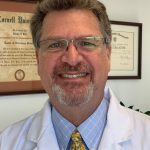
Jerold Bell - Hereditary Diseases
What is your lecture about and why should people attend the session?
We are no longer treating just dogs, cats and exotics. We are treating purebred, designer-bred and mixed-breed patients. Their predispositions toward hereditary disease differ based on their ancestral background. In addition, direct to consumer genetic testing is providing large amounts of genetic information to our clients – some of which is not relevant to their pets and can cause improper and possibly disastrous decision-making in their care. The advent of precision medicine – where the genetic background of individuals dictates their care is upon us. Lastly, the breeding of companion animals – whether purebred or mixed-breed – requires pre-breeding veterinary health screening of prospective parents. Healthy parents produce healthy offspring. Veterinarian understanding of the tools available and our obligations regarding genetic disease in our patients will allow for better diagnostics, treatment, and healthier pets.
What do you like most about your job?
I love being a solo small animal general practitioner. I treat my patients from their first visit to their last. I not only see my patients grow up and develop through their lives but also their families. I have seen children come in with their parents and pets and now are treating their children’s pets. Every day I see something new and different. I love being able to treat medical and surgical cases to the level of my ability, as well as being able to refer when a specialist is needed. Time off is time off – we must live balanced lives to be good at what we do. Communicating honestly and in an understandable manner with clients is key. My appointments are always full. I do not need to advertise, market, run unnecessary testing, or be concerned with competing with corporate practices. If you provide a good service to your clients and patients and enjoy what you are doing in a supportive practice environment you will be a successful veterinarian. Oh, and appreciate your support staff. You cannot function without them.
What is your favorite part of the Congress?
My favorite congress sessions address practical issues that I face daily in practice and keep me up to date on new treatments and developments. I enjoy interacting with practitioners from around the world – understanding our similarities and differences.
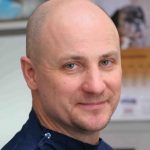
Jerzy Gawor - Dentistry
What is the topic of your lecture?
My lectures will be dedicated to difficult challenges in daily dentistry. Firstly: recognition of the dental problems and communication with the pet owner, in brief – Approach to Veterinary Dental Patient. Secondly: discussion about links between oral health and systemic signalments. The focus will be on two major directions: Behaviour in Cats and Ophthalmology.
Which sessions in the program are you most excited about?
I like surgery and oncology but the more I look at the program the more interesting it appears. Entirely.
What do you like most about your job?
Observation of Veterinary Dental Patient life, comfort improvement after accurate diagnosis and treatment.
What is your favorite part of the Congress?
Education will remain as a very important part. Teaching is a very effective method of learning.
What has been the most remarkable case you have seen in your practice?
Every patient is unique and I can find satisfaction in all clinical situations.
My favorite animal is:
Any animal which is presented at the consulting room with a problem I can manage.
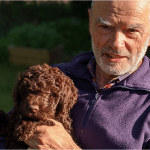
Tadeusz Frymus - Infectious Diseases
What is the topic of your lecture?
In Europe, cases of canine brucellosis are very rarely recognized. However, long-term subclinical infections, nonspecific signs and numerous problems with laboratory diagnostics rise the suspect that this condition may be underdiagnosed. In contrast, in America brucellosis is an important infection in breeding kennels and in stray dogs. Finally, it is a zoonotic disease. Therefore, also in Europe practitioners should consider this disease in the differential diagnostics of chronic conditions, especially (but not only) of the reproductive organs.
Which sessions in the program are most excited for?
Infectious diseases, microbiology, immunology
What do you like most about your job?
The teaching of students, especially clinical training.
What is your favorite part of the Congress?
Meeting people.
What is the rarest animal you’ve treated?
A hedgehog.
My favorite animal is:
the cat

Stephan Neumann - Gastroenterology
What is the topic of your lecture, and why should people attend the session?
I speak about the most important internal organs liver and pancreas. The delegates will learn how to diagnose diseases of both organs, they will see how interesting the pathophysiology of both organs can be, because of a variety of consequences on other organs. The will see nice pictures and finally I will give ideas for treatment. All is cases based, which make it much more comfortable to follow.
Which session in the program are you most excited for?
The whole program is full with very interesting topics, congratulation to the organizers. It will be very difficult to choose between all these sessions.
What do you like most about your job?
I love my job, because there is no other job on earth, which has so many different aspects.
What is the rarest animal you have treated?
I have treated a spider with a fracture of the chitin skeleton.
My favorite animal is:
my dog, my cat, my horse.
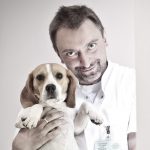
Wojciech Nizanski - Reproduction
What is your lecture about and why should people attend the session?
I will present how to use, in practice, the perfect combination of modern gynaecological diagnostic tools as ultrasound, vaginal cytology and blood fertility markers. These tools appear as the gold standard in dog and cat reproductive diagnostics. I will describe the pros and cons of them, sources of mal interpretations, advantages of the use of a combination of them and generally I will explain how to use them to obtain success.
Which sessions in the program are most excited for?
I like reproduction sessions, cause the speaker is Andrea Muennich-one of the best practitioner and researcher I ever know in veterinary.
What do you like most about your job?
I love all the reproduction field. But in particular, I like to see gestational sacs and fetuses when I do an ultrasound. Especially in bitches and queen which underwent before long-term treatment of fertility disorders. This is amazing to see heartbeats, movements of paws and hiccups. Really amazing…
What is your favorite part of the Congress?
All the scientific sessions and meetings with all my good friends from abroad and from Poland – with all members of our veterinary family.
What is the rarest animal you have treated or the most remarkable case you have seen in your practice?
I participated in the treatment of the gynecological problem in some exotic animals e.g. the elephant – this was something unique for me. Personally, between such unique activities, I love to work with wild felidae in ZOOs and National Parks. I participate in programs of rescue of endangered wild felidae with the use of Assisted Reproductive Technologies. Therefore we perform in vitro fertilization, semen collections, oocyte and sperm cell banking and also Artificial Insemination in females. These are really challenging procedures. Treatment of infertility, germ cell banking aiming establishment of BioArk of frozen gametes, the performance of artificial insemination in pumas, leopards, tigers, lions etc…. This is a really fascinating field of our profession.
My favorite animal is:
I love all animals. At this moment I am focused on my mix-breed dog called Misiek which means more or less “Teddy Bear”:)
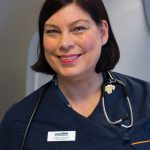
Minna Rinkinen - Global Nutrition
What is the topic of your lecture?
Pancreatic disorders are rather common in dogs and cats, but how to feed the patient correctly can be puzzling. How much fat in the diet is optimal? How about all those supplements marketed for pancreatic diseases, are they of any help? And vitamins, do they need something extra? These are some of the topics we will touch in our presentation.
Which sessions in the program are most excited for?
I am a gastroenterologist at heart, so I am very much looking forward to the GI lectures.
What do you like most about your job?
Being able to help animals and working together with people who love animals and want to help them, too.
What is your favorite part of the Congress?
Meeting old and new friends all over the world and learning new things.
What is the rarest animal you’ve treated or what is the most remarkable case you have seen in practice?
I have once performed an endoscopy in a whooper swan. That must be the rarest animal I have treated.
It is very hard to pick one remarkable case, but I think I can always remember that one little terrier who had suffered from a piece of bone stuck in its esophagus for almost two months. The poor dog was so thin and miserable, clearly in pain. I removed the bone endoscopically and sent the dog home. The next day, the owner brought the dog back to the clinic just to show us how happy it was: jumping around, barking at other dogs, and playing with the owner. The owner had tears in his eyes when he told me that the dog had been able to eat properly for the first time in weeks.
My favorite animal is:
I like all animals and cannot pick a favorite. Although I do have a soft spot for cats…
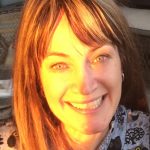
Vanessa Schmidt - Dermatology
What is the topic of your lecture, and why should people attend the session?
Dermatological disease is a common presentation in veterinary practice with many patients suffering from chronic and/or recurrent signs. This can be debilitating for the patient and lead to frustration for both owner and vet. A systematic investigation and treatment plan as well as good client communication are paramount for a successful outcome. My lectures will cover first-line, important investigative tools (cytology), investigation, and treatment of atopic dermatitis and otitis cases (often linked, they are the most common, challenging and frustrating diseases that I deal with). Finally, contrary to general belief, I will also provide evidence that dermatologists do actually see emergencies!
Which session in the program are you most excited for?
Antimicrobial stewardship and intestinal dysbiosis. My Ph.D. (in veterinary microbiology) investigated these subjects, which are linked with dermatology (infections are one of our most common presentations). I look forward to hearing about the latest thoughts and updates.
What do you like most about your job?
Everything! I love the investigative challenge and procedures (especially cytology), but also I love making a difference to our patient’s (and client’s) quality of life (I also love ‘doggie cuddles’).
What is your favorite part of the Congress?
The whole experience: furthering my knowledge and developing new ideas and research questions, seeing and experiencing a new part of the world (and the local delicacies) and catching up with friends and colleagues – maybe potentially hatching, discussing, or even starting new projects.
What is the rarest animal you have treated?
Not rare, but unusual – a Giraffe and a Spider Monkey.
What has been the most remarkable case you have seen in your practice?
This is difficult to answer – any patient that has been previously suffering and then improves to live a good quality life is remarkable for me and I am lucky that there have been many of these – many of our cases have chronic, life-long disease; the most remarkable case for me was a case of generalized and acute cutaneous vasculitis that is now living a normal life.
My favorite animal is:
My favorite pet is a dog, but I also enjoy insect and bird watching and photography (of anything wild actually), but I am definitely an amateur.

Luca Guardabassi - Antimicrobials
What is your lecture about and why should people attend the session?
The lecture will provide an overview of the currently available clinical guidelines for antibiotic use in companion animal veterinary practice. These documents are essential to rationalize antibiotic use and ultimately to meet the societal demand to improve and reduce the use of antibiotics in veterinary medicine.
Which sessions in the program are most excited for?
The One Health stream. I am a big fan of the One Health approach to tackle infectious diseases and AMR.
What do you like most about your job?
Task diversity and flexibility.
What is your favorite part of the Congress?
The social program 🙂
My favorite animal is:
A dog.
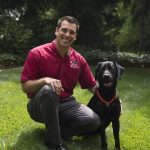
Brian Zanghi - Food for Thought
What is the topic of your lecture?
I will be summarizing my published research evaluating a water supplement for healthy cats. Not only does this approach demonstrate a novel method for improving cat hydration, but the research also helps to expand on the basic knowledge of a cat’s daily water intake patterns, urine output measures, and translation into the clinically relevant estimation of dosing for the individual pet.
Which sessions in the program are most excited for?
My passion is in nutrition, but also like to immerse myself in topics related to neurology, orthopedic, and urinary tract health.
What do you like most about your job?
As a research nutritionist at Nestle Purina, I have the opportunity to pursue research across a wide range of topics, which allows me to collaborate with many different specialists in areas that are new to me. This sense of constant learning and evolving is very intellectually rewarding, as well as meeting many incredibly amazing researchers.
What is the most remarkable case you have seen in practice?
Because I am not a veterinarian, my experience is less focused on individual cases, but more on searching for new nutritional innovations that can help many pets. Prior to my recent research in hydration for cats, my most remarkable experience was leading the Nestle Purina research in collaboration with Dr. Holger Volk that revealed the use of MCT oil to help dogs with anti-seizure drug-resistant idiopathic epilepsy, which ultimately led to the launch of PPVD NeuroCare NC diet.
My favorite animal is:
always a Black Labrador Retriever.

Chand Khanna - One Health
What is the topic of your lecture?
Progress and the future of molecular medicine in canine hemangiosarcoma. Attendees will understand the basis for new hope for their patients
Which sessions in the program are most excited for?
The One Health Program
What do you like most about your job?
The opportunity to help cancer patients and their families and to deliver curative outcomes for cancer patients.
What is your favorite part of the Congress?
Meeting colleagues from around the world; The One Health Program
What is the rarest animal you’ve treated?
A tiger with mammary cancer.
What has been the most remarkable case you have seen in your practice?
A ventilated Alaskan Eskimo dog who stood up during ventilation when the owner entered the ward for a visit.
My favorite animal is:
Danish Swedish farm dog: Odin
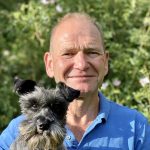
David Bartram - Professional Wellness
What is the topic of your lecture?
Top tips on managing stress and enhancing wellbeing
Which sessions in the program are most excited for?
Learning from the other speakers and the delegates in attendance at the WSAVA Professional Wellness stream
What do you like most about your job?
The privilege of the opportunity to influence animal health at a global level
What is your favorite part of the Congress?
Meeting fellow delegates from around the world
What is the rarest animal you have treated?
An axolotl with severe bloat is an especially memorable case
My favorite animal is:
My girlfriend’s miniature schnauzer called ‘Mouse’
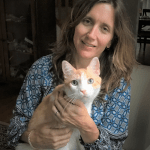
Holly Brown - Clinical pathology
What is your lecture about and why should people attend the session?
All my talks are focused on maximizing diagnostic information from laboratory testing — including data from the minimum database, coagulation testing, and effusion analysis. All presentations are case-based and include tips to maximizing in-clinic diagnostics for improved patient care.
Which sessions in the program are most excited for?
I am excited to hear the IVECCS presentations, as well as Babesia updates, and imaging of effusions — those topics that are intimately associated with clinical pathology, naturally.
What do you like most about your job?
I have a unique position as an on-staff clinical pathologist at a large hybrid general-referral-ER practice, and I love being intimately involved in the cases, working closely with the attending veterinarians and owners.
What is your favorite part of the Congress?
I am excited to be part of a large international gathering, not just to educate but to learn myself from speakers and attendees practicing in different areas of the world.
What is the rarest animal you have treated or the most remarkable case you’ve seen?
As a pathology resident, I had to perform a necropsy on a tarantula (it was still creepy even though it was dead).
And I remember aspirating a mass attached to a cat’s scapula and discovering ciliated epithelial cells! Radiographs revealed a solitary lung mass, thus this was a presumed metastatic bronchial or bronchiolar carcinoma.
My favorite animal is:
A Llewellin Setter. We rescued one that was a grouse hunting flunkee, and we have since fallen in love with the breed. They are invariably sweet and crazy fun outside running but calm and lazy in the house – perfect for our family.

Gerhard Wess - Cardiology
What is your lecture about and why should people attend the session?
Dilated Cardiomyopathy is the most common cardiac disease in medium to large breed dogs. During the last few years we made tremendous advances in diagnosing the disease earlier and better, including biomarkers as well as new echocardiographic methods. Many of these new diagnostic tools can be already now used in daily practice, others are under investigation and we will talk about the new and future diagnostic methods, as well as about new promising therapeutic options.
Which sessions in the program are most excited for?
There will be many highlights, but from my perspective, the point of care ultrasound sessions by Dr. Boysen and the gastroenterology sessions are very appealing.
What do you like most about your job?
It is my absolute favorite thing to teach veterinarians around the world about cardiology, which has a high impact and it is a pleasure to see how the participants improve and have fun. Additionally, getting many difficult cases daily is challenging, and helping animals to have a better quality of life gives me a good feeling. And it is never the same.
What is your favorite part of the Congress?
Besides the excellent lectures, it is great to meet many colleagues from all around the world.
What is the rarest animal you have treated or the most remarkable case you’ve seen?
We implanted a pacemaker to a raccoon, because it had daily several syncopes. It is probably the only raccoon in the world who got a pacemaker so far – and it is doing fine.
My favorite animal is:
I love them all, but seeing leopards on safaris is a highlight.

Sylvia Masson - Welfare
What is the topic of your lecture?
My lecture concerns the welfare of the team. When talking about welfare, this is a topic that cannot be neglected, because the whole team has to work for welfare in the same direction. Most of the welfare recommendations are limited to calm manipulations of the pets, which is just not possible if the team itself is tensed. In this conference, we will develop communication tools that the team can adopt to work in a good atmosphere but also some specific practical tools that can be taught to handle pets efficiently without putting the team at risk: The practical good practices that help the team to work in good conditions, and hence help the pet too.
Which sessions in the program are most excited for?
I am very interested in all the pain management topics, as they are of great concern for my discipline too.
What do you like most about your job?
The fact that, even if I stopped to do very technical acts like surgery, which is probably the most impressive part of the vet job in everyone’s mind, I never had more gratefulness from owners than since I am working in the behaviour field. I really feel that I can change people’s lives and improve owner’s and their pet’s quality of life which is very rewarding.
What is your favorite part of the Congress?
The scientific program is of course a core reason for coming to congresses, but my favorite part is that each congress is an opportunity to meet amazing people, with unique histories. I find this very enriching.
What is the rarest animal you have treated?
Before working exclusively as a behaviorist, I had to treat a boa. However, in my veterinary psychiatry experience, the rarest animal I have been asked to treat was a lama.
My favorite animal is:
a Koala bear (but I never treated one sadly!)

Elwin van Oldenborgh - Professional Wellness
What is the topic of your lecture?
The topic of my lecture will be Worldwide Student Wellness. I will be presenting the results of my research that I’m currently doing into the wellness of veterinary students worldwide.
Which sessions in the program are most excited for?
I am most excited to hear the WSAVA One Health stream, as I’m very interested in One Health and the speakers and topics all seem to be excellent.
What do you like most about your job?
I’m still a student, so I haven’t got much experience in the clinic yet, but the thing I love most right now in my clinical rotations is to see how you help both the animal and the owner by treating them. I think the feeling that gives you will never get old.
What is your favorite part of the Congress?
I don’t think I can pick one favorite part of the congress, as the thing I enjoy most is interacting with other people. I’ve only attended one WSAVA and one FECAVA event and both of them we’re truly an experience I hope to be able to replicate for a long time to come!
What is the rarest animal you have treated or the most remarkable case you’ve seen?
The rarest animal I’ve treated was a White Rhino when some friends and I tagged along with a South African vet one day: she got called and she said the following: “I really hope you guys don’t mind, but we have to change the schedule a bit as we need to help out with a rhino that got in a fight, really sorry about that”, so that was very exciting. The size of the needle and the force needed to penetrate the skin to give it some antibiotics was unlike anything I’ve ever seen before or since.
My favorite animal is:
The penguin (any species of penguin, I just think they’re adorable and it’s really cool to see how fast and agile they are underwater in contrast to their awkward waddling above water).

Bogdan-Alexandru Vitalaru - Nephrology
What is the topic of your lecture and why is it important for participants to attend?
Renal patients are a very important part of the daily basis of clinical cases. A quarter to a third of all patients in a clinic is represented by the renal patients. It is very important to decide which one is an emergency and to react properly in order to establish the correct diagnosis and to start the proper treatment in time.
The increasing number of cases for renal diseases in cats and dogs, but also the conditions generating this pathology as secondary impairment (leptospirosis, babesiosis, various poisonings) represent the fundamental need for developing peritoneal dialysis in cats and dogs.
Alongside dialysis, renal patients also need complex medical services (IV adjuvant therapy, enteral nutrition, feeding tubes), hospitalization, and continuous assisted care.
Uremia, renal disease, and acute poisoning are just some of the frequently encountered medical conditions in dogs and cats. In acute kidney injury, a fast decrease of glomerular filtrations is determined by renal ischemia or by toxic induced lesions at this level. A fast diagnosis, as well as initiating a treatment course such as peritoneal dialysis may lead to a full recovery.
Chronic kidney disease is the result of long term nephropathy (glomerulonephritis or pyelonephritis) that involves the irreversible reduction of active nephrons, compensated by nephron hypertrophy, which involves the drastic loss of glomerular filtrations. This condition develops progressively until anuria in the final stage. With chronic kidney disease, peritoneal dialysis aims to amend clinical symptoms and to improve the patient’s quality of life.
Peritoneal dialysis has become a widely used technique in removing toxins (endogenous and exogenous) that can be dialyzed, both in chronic and acute renal patients. With possibilities of use in the veterinary field nowadays and considering the future development of veterinary medicine, peritoneal dialysis occupies an important place in renal disease therapy in dogs and cats, especially in the case of elder animals and patients weighing up to 10 kg, that cannot withstand hemodialysis because of insufficient body mass or because of the underlying cardiopulmonary pathology.
Which sessions in the program are most excited for?
I would love to follow Clinical Pathology, Hematology, Soft tissue surgery and Oncology!
What do you like most about your job?
I wouldn’t call it a job. I would rather call it my passion, or my life. Because I love what I am doing and I consider myself always on a vacation. If I would have to choose between clinic and teaching, that would be really difficult, because I enjoy treating animals, but I really love sharing my knowledge and meeting new people.
What is your favorite part of the Congress?
Meeting old and new friends, sharing knowledge, and traveling to new destinations.
What is the rarest animal you have treated or the most remarkable case you’ve seen?
All animals are amazing, but I have treated a lion once… and that was… unique. About the most remarkable case in my practice, I would say Aksel, a golden retriever with babesiosis, that underwent hemodialysis for two weeks. He passed away, but he taught me an amazing lesson…
My favorite animal is:
I love all the animals, but my dog, Brutus is the best 🙂

Jan Suchodolski - Gastroenterology/Microbiome
What is the topic of your lecture, and its importance?
The lecture will discuss the importance of the microbiome in health and disease, with focus on microbial-derived bile acid metabolites. These are important regulators of the normal microbiota and have important signaling functions across multiple organs. Dysbiosis leads to changes in microbial bile acid metabolism. We will discuss the diagnosis of microbiome dysbiosis and therapeutic approaches in intestinal disease.
Which sessions in the program are most excited for?
All aspects of gastroenterology, as the GI tract is an important organ that affects the entire host system.
What do you like most about your job?
There are always new findings that change our approach to disease.
What is your favorite part of the Congress?
Learning new things from all my colleagues.
What is the rarest animal you have treated?
A hummingbird.
My favorite animal is:
A dog.
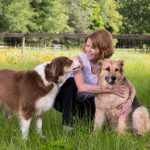
Sheilah Robertson - Global Pain
What is the topic of your lecture, and why should people attend the session?
I will be speaking with Dr Bonnie Wright on neuropathic pain. This type of pain involves damage to, or dysfunction of the somatosensory system and has often been overlooked in animals. It is not responsive to commonly used analgesics such as non-steroidal anti-inflammatory drugs. We will talk about the recent advances in quantitative sensory testing in animals, when and why you should suspect neuropathic pain in a patent, and which treatment approaches to use.
I will also be sharing a session with Dr Duncan Lascelles where we will discuss the treatment of our own patients with osteoarthritis. This is a common, but incurable disease. We will be discussing some information on new targets for pain alleviation and sharing some challenges we have had treating our own patients.
Lastly, I will do a short session on perioperative nausea and vomiting – this is often an overlooked cause of distress and cause of complications including aspiration pneumonia. Attendees will learn how to easily predict and prevent nausea and vomiting in their patients.
Which session in the program are you most excited for?
I always try to attend some One Health sessions because it shows how important the veterinary profession is in today’s global society and there is always something new to learn. I am looking forward to some of the welfare sessions. I am especially looking forward to hearing about the phenomenal progress that has been made in regard to the dog and cat meat trade: Dr Katherine Polak (FOUR PAWS International) is one of my heroes.
What do you like most about your job?
Teaching veterinarians, veterinary students, and veterinary staff how to recognize and alleviate pain in animals.
What is your favorite part of the Congress?
Visiting a new country (usually) and meet delegates from all corners of the world.
What is the rarest animal you have treated?
A white rhinoceros
What has been the most remarkable case you have seen in your practice?
It was a team effort to save a 2-week-old, 0.25 kg kitten in acute respiratory distress due to a ruptured diaphragm. He made it and was playing and eating 6 hours after surgery!
My favorite animals are:
Penguins
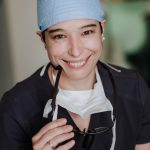
Ana Nemec - Dentistry
What is the topic of your lecture and why should people attend?
Oral and dental diseases are one of the most common problems in small animals that often remain overlooked or due to many misconceptions poorly treated, leaving animals silently suffer in pain. Attendees of my lectures during the veterinary dentistry stream, some of them shared with experts from other fields, will go home equipped with knowledge on how to properly extract teeth without risking major complications, how to deal with the most common oral and dental emergencies and oral tumors in dogs and cats, and, very importantly, how to manage oral and dental pain. The lectures are focused on providing evidence-based practical tips that can be immediately implemented into daily practice to improve the care of the patients and veterinary dentistry services.
Which sessions in the program are most excited for?
I would definitely suggest to attend the entire veterinary dentistry stream, provided by a group of awesome lecturers in the field, to get a more complete insight into a range of oral and dental problems small animals can suffer.
What do you like most about your job?
Knowing (and hearing it from the clients at re-checks after procedures), that providing proper oral and dental care to my patients relieves pain and hence greatly improves their quality of life.
What is your favorite part of the Congress?
Meeting old and new friends, sharing the knowledge and stories from our everyday lives.
My favorite animal is:
They are all simply great and we have so much to learn from them!

Bruno Peirone - Orthopedic Surgery / AOVet
What is the topic of your lecture, and its importance?
My lectures are about principles in fracture treatment accordingly with the AOVet philosophy. For a surgeon that would like to approach fracture treatments in small animals is important to learn those principles
Which sessions in the program are most excited for?
The practice management session.
What do you like most about your job?
Teaching to students and performing orthopedic surgery.
What is your favorite part of the Congress?
The opening ceremony.
What is the rarest animal you have treated or the most remarkable case you’ve seen?
I fixed a tibia fracture in a pink tiger.
My favorite animal is:
My dog Ruby.

Ian Wright - Parasitology
What is the topic of your lecture, and its importance?
The continuous relocation of dogs both within and between countries represents a global veterinary and public health concern. Dogs rescued from foreign countries will often be infected with exotic parasites that may have long term health implications for the pet and zoonotic implications. Veterinary professionals require a consistent approach to the imported pet in terms of clinical examination, diagnostic tests, and treatment. This lecture will discuss what to consider when assessing the imported pet and how to limit parasitic disease risk both to the pet, new owner, and maintain biosecurity. The future of the pet passport scheme will also be discussed and legislation that may be useful in limiting parasitic disease risk.
Which sessions in the program are most excited for?
Apart from the excellent ESCCAP stream I am very much looking forward to the one health stream. Emerging zoonoses and increasing distributions of both vectors and vector-borne pathogens means there has never been a more important time for a joined approach to tackling the world’s infectious disease crises.
What do you like most about your job?
Engaging with pet owners and hopefully improving both their health and the health of their pets as a result…..and cuddling puppies ?
What is your favorite part of the Congress?
Catching up with old colleagues and networking to meet new ones.
What is the rarest animal you have treated?
A gannet, not particularly rare but an impressive bird with impressively large lice!
What has been the most remarkable case you have seen in your practice?
I was called out once to a stray cat someone had found and spent hours trying to remove a piece of plastic impaled in its leg. Turned out that the cat was owned, and it was an external fixator!
My favorite animal is:
Whales, although I don’t get to treat too many on a daily basis!
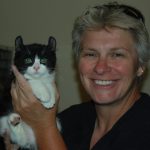
Leslie Lyons - Hereditary Diseases
What is the topic of your lecture, and why should people attend the session?
Historically, genetics has been used to prevent diseases by testing breeding animals for DNA mutations. As whole-genome sequencing is now cheaper than some veterinary diagnostics, such as MRI and CT, genome sequencing cat support disease diagnosis, and in some cases, particularly cancers, be used to select more effective treatments. The whole-genome sequence leads to an extensive DNA profile that can used as a Precision medicine approach to veterinary health care. State-of-the-art approaches in veterinary care include understanding and how to access Precision Medicine for Companion Animals.
Which session in the program are you most excited for?
I will focus on various sessions depending on the genetic projects that I am working on. So, you could find me about anywhere – pertaining to cats!
What do you like most about your job?
Working with different veterinary specialists and different cat breeds.
What is your favorite part of the Congress?
Meeting and chatting with collaborators.
What is the rarest animal you have treated?
I got to be involved with a study on the vampire bat!
My favorite animal is:
the Snow Leopard

Marek Świtoński - Genetics
Can you provide a short summary of your lectures?
Genetics of canine obesity
Obesity is a serious health problem in humans and companion animals, especially dogs. This disease has a polygenic background with a strong impact of non-genetic factors (nutrition, physical activity, etc). In humans over 200 DNA variants show association with obesity. On the contrary, studies of such variants in dogs are not advanced. Updated knowledge of genetic markers associated with canine obesity will be presented.
The use of molecular genetics in dog and cat breeding and veterinary medicine
Molecular background of numerous monogenic hereditary diseases (e.g. eye diseases, lysosomal storage diseases etc) in dogs and cats was elucidated and their genetic testing is available. On the contrary, knowledge of the cytogenetic and molecular background of disorders of sex development, including polygenic cryptorchidism and hypospadias, is poorly elucidated. These disorders cause infertility or sterility and can be associated with an increased risk of other diseases (e.g. gonadal tumors). Updated knowledge of canine and feline genetic diseases and disorders will be presented.
Which sessions in the program are most excited for?
The WSAVA Hereditary Diseases; Onclogy; PSAVA Reproduction streams and lectures.
What do you like most about your job?
Searching for cytogenetic and molecular causes of disorders of sex development
What has been the most remarkable case you have seen in your practice?
The most remarkable cases, which I diagnosed genetically, are dogs with female sex chromosomes having: virilized external genitalia, testes or ovotestes, along with uterus and ductus deferens.
My favorite animal is:
A cat.
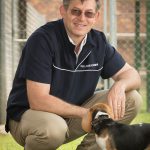
Johan Schoeman - Infectious Diseases & Critical Care
What is the topic of your lecture, its importance and what will attendees get out of it?
Internist and Imager crosstalk – interactive internal medicine cases and the use of bedside tests/imaging.
This interactive case presentation between Dr Nathalie Rademacher from Louisiana State University and myself on Sunday afternoon will address recent developments in the bedside assessment of complicated cases. It indicates the essential skills that need to be acquired by 21st-century clinicians. It will illustrate the need for FAST scanning, as well as for the assessment of endocrine and inflammatory biomarkers of prognostication.
I am also looking forward to updating colleagues on canine babesiosis and the latest evidence for and against the use of corticosteroids in critical illness. Lastly, I will also present an update on the treatment of canine hypoadrenocorticism.
Out of the entire scientific program, which sessions (besides your own) attract your interest most and why?
The two topics on 5-minute ultrasound by Dr Soren Boysen from Canada have really piqued my interest, especially since we use those techniques every day in our clinic!
What do you like most about your job?
The immense variety; from didactic to interactive teaching to action research and tending to a whole gambit of internal medicine cases and lastly, reading on the pathophysiology of disease and explaining this to students.
What is your favorite part of the Congress?
Physical conferences have been rare during these times and the opportunity to network with colleagues and to discuss potential new research projects are activities to look forward to!
What is the rarest animal you have treated?
It will have to be Makoko, the 37-year-old Gorilla. I had the privilege of doing an echocardiogram on him prior to his nasal CT and subsequent surgery.
My favorite animal is:
the Equine athlete, which to me is a mixture of raw power and sheer poetry in motion.
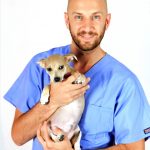
Federico Massari - Oncology
Give us a short summary of the topic of your lecture, and its importance?
We have to discuss biopsy in oncology, management of the mammary tumors in dogs and cats and surgical approach to soft tissue sarcomas of the distal extremities. A different point of view, based on the experience of a surgical oncologist is necessary to treat every one of these topics correctly. Biopsy has to be done correctly to have the right quantity of tissue and a rapid and correct diagnosis. Management of the mammary tumor is highly complicated in dogs, but managing the patient correctly helps the surgeon choose the correct surgical dose and the correct approach.
Out of the entire scientific program, which sessions (besides your own) attract your interest most and why? The session you are most excited for?
I really love minivasive surgery and I really appreciate every effort on that.
What do you like most about your job?
For sure animals. But most of all the possibility to let them live better and for a longer period.
What is your favorite part of the Congress?
A full day of soft tissue surgery, oncology and antimicrobials. I really love all these topics.
What is the rarest animal you have treated? What has been the most remarkable case you have seen in your practice?
I worked with camels when I was sent for 1 year in the university of Canarias (Spain). It was amazing, they are very loving animals.
My favorite animal is:
I really love donkeys!

Marge Chandler - Global Nutrition / ''How I Treat''
Short summary of the topic of your lecture and why should people attend your session?
How I treat feline interstitial cystitis.
Feline Interstitial Cystitis causes distress and pain in affected cats. It can also lead to urinating in inappropriate places, which affects the bond with the owner. This lecture will discuss nutritional management of the disorder as well as touching on behavioural and environmental management to improve the quality of life for cat and owner.
Out of the entire scientific program, which sessions (besides your own) attract your interest most and why? The session you are most excited for?
As a nutritionist and internal medicine specialist, I am most interested in the topics that touch on these areas, I am always the most excited about the Global Nutrition Stream session.
What do you like most about your job?
I enjoy providing advice and help for veterinarians for difficult cases and being able to make their lives easier as well as helping treat the pets and their owners.
What is your favorite part of the Congress?
The lectures and meeting up with new and old friends.
What is the rarest animal you have treated?
I used to work with the zoo animal veterinary specialists to remove rocks from penguins’ stomachs. Penguins carry rocks as part of a courting ritual but sometimes swallow them!
What has been the most remarkable case you have seen in your practice?
The most remarkable case I have worked on was a dog who had surgery for a twisted intestine which had gone wrong. He presented to us nearly dead and an entire team saved him. The teamwork in the clinic was amazing.
My favorite animal is:
My two cats, Jack and Ella.
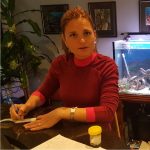
Laura Urdes - Blood transfusions/WAVMA
Can you provide a short summary of the topic of your lecture and its importance?
Zoonoses associated with ornamental aquatic trade and husbandry
Zoonoses are diseases transmitted to humans from domesticated and/or wild animals. This lecture will describe the epidemiology of the most common zoonoses associated with ornamental fish, with a focus on clinical signs and factors to consider in reducing the risk of the diseases transmission and/or translocation.
Out of the entire scientific program, which sessions (besides your own) attract your interest most and why?
The sessions on Global Pain, Pain Management, Welfare and One Health. These are all actual, interdisciplinary topics. I am expecting to see exciting lectures and witness interesting discussions on these topics.
What do you like most about your job?
Interacting with the people in the field, always finding something new and exciting to learn about in the profession.
What is your favorite part of the Congress?
The Opening Ceremony.
My favorite animals are:
Wombats.
